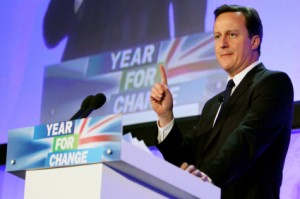The BBC has identified the 5 biggest questions which it thinks the new Conservative government needs to address on matters of policy. David Kingman explores the intergenerational dimensions of each

Now that the dust has begun to settle on the 2015 general election, the BBC has compiled a list of what it calls the “5 Big Questions” that the new Conservative government must address on matters of policy. One of the striking features of this list is that all of the policy questions it raises would have major impacts on future generations, in addition to those of us who are here today. This article takes a look at their intergenerational implications.
Question 1: Should we expand Heathrow airport?
The debate over expanding Heathrow airport has been raging for years, with the economic arguments for expanding airport capacity in the South East of England being balanced against the concerns of local residents and environmental campaigners, who argue that encouraging more air travel will increase pollution and act against the goal of halting climate change.
Clearly, climate change is an intergenerational issue; IF has previously argued that one of the keys to solving this puzzle is taxing air fuel at the same level as road fuel, as it is currently under-taxed in a way which fails to take account of the environmental damage that flying causes. The next step in this long-running saga will come when the Airports Commission publishes the results of its current public consultation this summer, but – given the controversial nature of the issue – it seems unlikely this will be the end of the matter.
Question 2: Should we build the HS2 railway line?
The Conservatives are committed to building the “High-Speed 2” railway line that will link London to the cities of the Midlands and the North at an estimated cost of £50 billion. IF’s previous article on this subject laid out the intergenerational dilemma: given the debt it will impose on future generations there needs to be a strong practical case for building HS2, but the latest research from the House of Lords Economic Affairs Committee argued this is unconvincing. However, the government is now expected to press ahead with HS2, with the start of construction planned for 2017.
Question 3: Are we going to build new nuclear energy plants?
Nuclear energy has long been touted as a potential means of lessening Britain’s dependence on carbon-based fossil fuels. The UK hasn’t built a new nuclear reactor for 20 years, but the Conservatives pledged in their manifesto to invest in nuclear energy; this comes on top of the pledge made by the Coalition in 2013 to build the new Hinckley C nuclear energy plant in Somerset at a cost of £24.5 billion.
This new nuclear energy strategy is highly intergenerational, for two reasons. Firstly, because the Hinckley C deal involves guaranteeing a wholesale price of energy for the next several decades in order to minimise risk to the private sector, it will impose an enormous cost on future generations that could turn out to be poor value if other methods of generating energy turn out to be cheaper. Secondly, there is the obvious problem of nuclear waste, which remains radioactive for thousands of years. Under current plans the new nuclear energy plant could be active within the next decade, but this is unlikely to be the end of the matter.
Question 4: What is the UK’s strategy on climate change?
The new Conservative government will need to outline its commitments to climate change mitigation, which clearly impact on two of the other issues mentioned above: airport expansion and nuclear energy. A major summit meeting is being staged by the UN in Paris at the end of 2015 where the parties hope to agree a new global deal on climate change. Britain will be an active participant in the debate, and of course environmental policy ties in to the future of Britain’s vexed relationship with the European Union, as many environmental initiatives originate at EU level.
The Conservatives revealed little in the way of specific plans for addressing climate change during their election campaign other than a promise to give affected local communities more say over planning applications to build wind farms, but much firmer commitments will soon be called for.
Question 5: What is the future of Britain’s defence policy?
This can also be seen as an intergenerational issue because one of the key decisions facing the new Conservative government is whether or not to renew Britain’s nuclear weapons.
The UK’s current arsenal of four nuclear-armed submarines is due to be retired by 2028. The cost of replacing them has been estimated at £17.5 to £23.4 billion (with a huge margin of uncertainty), which would add an enormous amount to Britain’s national debt at a time when almost all other government services are being cutback. While the security establishment seems broadly in favour of Britain remaining a nuclear power, some critics believe it is morally reprehensible for the country to have nuclear weapons, while others argue against them on practical grounds given how unlikely it is that they will ever be used. Like with all of these controversial issues, hard decisions will soon have to be taken by the incoming Conservative government, the full impacts of which may be felt for generations to come.
